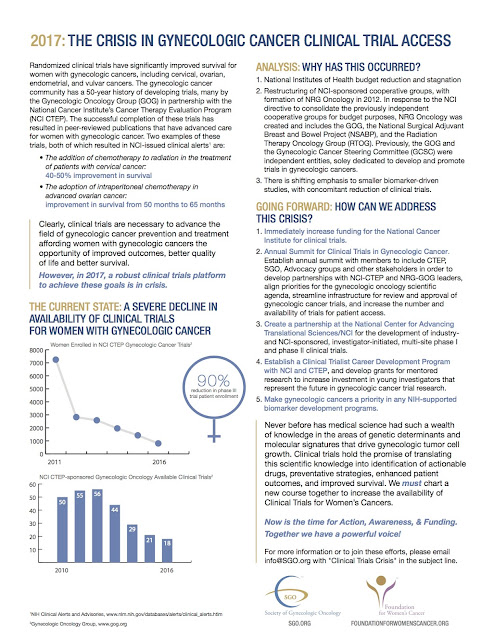We were pleased to welcome a number of new participants among the 26 people who joined us. You may find our analytics here and a transcript here.
Below are the questions Christina used to guide our discussion along with some sample answers. Please read the complete transcript for all the comments.
T1: When you think of the losses you’ve experienced related to gynecologic cancer, what are the first things that come to mind?
- When I think of losses I think friends lost to OC, the organs that allowed me to have my children, my ability to recall words quickly.
- T1 loss of control, loss of carefree living, loss of ability to assume things are ok even if it’s a false assumption
- T1: For me, it's the faces of ovarian cancer survivors I have worked with over the years who are no longer here to advocate.
- Cancer is a string of losses - of many kinds, so of course, there is lots of grieving as well. How could there not be?
T2:
What physical losses have you experienced? Have you talked to your
provider about them? Pls share any tips that have helped you.
- T2 Physically- organs: repro, vagina, bladder, portions of sm & lg intestine, left kidney, nephrosis of rt kidney, gall bladder, thyroid,
- T2 Feeling the toes in my left foot, My thick hair ( after losing it twice it is thin)
- T2 whatever physical losses, care team must take seriously their effects on function and quality of life
- And it seems that physical losses tend to change how we see ourselves socially, emotionally...
T3:
Has the death of women with a similar diagnosis affected you? What
tactics do you put into action to deal with losses of friends and
family?
- When you participate in disease communities, loss comes with it... And it is okay to step away from time to time and recharge
- T3 A year after my recurrence I lost 4 friends from my support group. I was devastated, guilty, and scared of recurrence. Speaking to the Social worker helped. She gave coping skills.
- T3- Yes. I have helped women as mentor locally and distance & have spoken at multiple services. Having been diagnosed as 'terminal' this has impacted me terribly, major SURVIVOR'S GUILT!!!
T4: Women diagnosed w/ gyn cancers
have said the loss of sexual intimacy has been difficult for them. What
advice do you have for others?
- It’s mind-blowing that many doctors avoid talking about fertility & sexual health. We are all adults. There’s no room for stigma, taboos. Patients need answers to pressing questions & reali life concerns.
- T4- Intimacy does NOT require being physical. Have not had 'sex' in 7+ years. But this does not mean we've not been intimate. Be adventurous. Find joy in the simplest things, a soft touch, kissing, etc. If done properly, partners can find MORE INTIMACY without sex.
- T4: Even for the tough things, good to know there are lots of resources out there when you are ready. Being open to talking about it first step..
- many of my brca+ friends who've had ooph talk about painful intercourse/vaginal dryness and feeling a loss of sexuality. Luckily they've worked with their providers to overcome those hurdles
T5: What areas of loss (physical, emotional, social or otherwise) do you think need more research?
- All of them.
- T5: As we learn more about all of the losses, research has to focus on how we support women to LIVE fully despite the loss.
- T5: The goal is to have more cancer survivors, but we have to plan for how to support them as well.
- Also more scientific research to bring therapies from bench to bedside.
- T5: I'd also love to see more research surrounding getting ahead of neuropathy. Chemo nurses have tips but nothing universal
Please scroll down to see a list of Resources shared during the chat.
You may continue to discuss these questions with us on the Smart Patient Platform (https://www.smartpatients.com/
Mark your calendar for our first chat of 2018 on January 10th. We will discuss Caregivers - their needs and wants with guest Lauren Hand, Gynecologic Oncology Fellow, Magee-Womens Hospital of UPMC.
Dee and Christina
Founders #gyncsm
RESOURCES
Nancy's Point There Will Be Tears at Christmas http://nancyspoint.com/will-tears-christmas/
Cancer rehabilitation @cancerDotNet https://www.cancer.net/survivorship/follow-care-after-cancer-treatment/rehabilitation
Renewing Intimacy & Sexuality after Gynecologic Cancer http://www.foundationforwomenscancer.org/wp-content/uploads/Sexuality-Brochure_Final.pdf
Women's Guide to Sexuality During & After Cancer Treatment
RESOURCES
Nancy's Point There Will Be Tears at Christmas http://nancyspoint.com/will-tears-christmas/
Cancer rehabilitation @cancerDotNet https://www.cancer.net/survivorship/follow-care-after-cancer-treatment/rehabilitation
Renewing Intimacy & Sexuality after Gynecologic Cancer http://www.foundationforwomenscancer.org/wp-content/uploads/Sexuality-Brochure_Final.pdf
Women's Guide to Sexuality During & After Cancer Treatment
@cancdotnet Managing menopause and side effects from treatment
https://www.cancer.net/blog/2016-08/survivorship-after-gynecologic-cancer-managing-menopause-and-treatment-side-effects
In Shock by Rana Awdish (book)
Society for Participatory Medicine @S4PM (organization)
Chemo Induced Peripheral Neuropathy - Participating in a Clinical Trial











